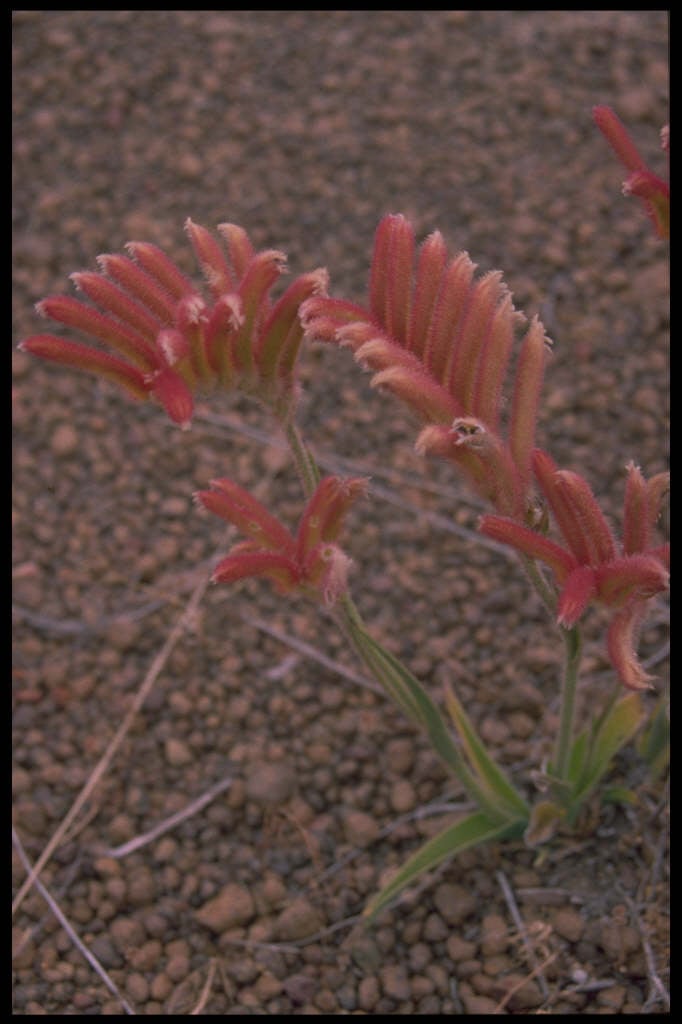Size
Ultimate height
0.1–0.5 metresTime to ultimate height
2–5 yearsUltimate spread
0.1–0.5 metresGrowing conditions
Moisture
Well–drainedpH
Acid, AlkalineColour & scent
| Stem | Flower | Foliage | Fruit | |
| Spring | Green Orange Red Yellow | Green | ||
|---|---|---|---|---|
| Summer | Green | |||
| Autumn | Green | |||
| Winter | Green |
Position
- Full sun
Aspect
South–facing
Exposure
Sheltered Hardiness
H2Botanical details
- Family
- Haemodoraceae
- Native to GB / Ireland
- No
- Foliage
- Evergreen
- Habit
- Tufted
- Genus
Anigozanthos are tufted evergreen rhizomatous perennials with narrowly strap-shaped leaves and erect stems bearing simple or branched racemes of tubular, hairy, hooded flowers
- Name status
Correct
How to grow
Cultivation
Grow outdoors in moist but well-drained humus-rich sandy soil in frost-free situation. Mulch with straw or chip bark in autumn to protect plant crown over winter. Grow under glass in 3 parts peat substitute or leaf mould and 1 part each loam and sharp sand. Excellent as a cut flower
Propagation
Propagate by seed or division
Suggested planting locations and garden types
- Patio and container plants
- Low Maintenance
- Cut flowers
- Wall side borders
Pruning
No pruning required
Pests
Generally pest-free
Diseases
Generally disease-free
Love gardening
Sign up to receive regular gardening tips, inspiration, offers and more
View our Privacy Policy
Get involved
The Royal Horticultural Society is the UK’s leading gardening charity. We aim to enrich everyone’s life through plants, and make the UK a greener and more beautiful place.
